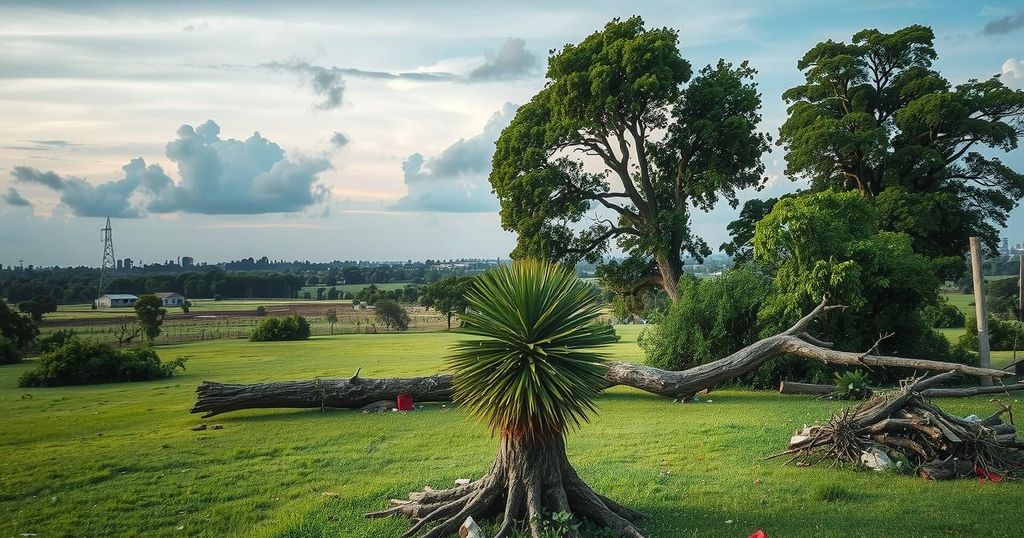WFP Mozambique: Food Assistance and Challenges After Cyclone Chido

The WFP has concluded its first distribution cycle for 180,650 cyclone-affected individuals in Mozambique, but faces funding challenges limiting assistance to 55,000 people. An urgent need for USD 14 million exists to maintain food support. Additionally, WFP is addressing safety concerns amid civil unrest while striving to reach those impacted by infrastructure damage, coordinating closely with partner organizations.
The World Food Programme (WFP) has completed its initial distribution of food aid for families affected by Tropical Cyclone Chido in Cabo Delgado. A total of 180,650 individuals received seven-day food rations by January 10. However, WFP lacks the funding to continue supporting all vulnerable families in the coming months, with only enough resources to assist 55,000, highlighting an urgent need for USD 14 million to sustain operations until March 2025.
Amid rising civil unrest in Mozambique, WFP is implementing enhanced safety measures to ensure the secure delivery of aid. The organization has resumed food distributions, which had temporarily ceased due to security concerns, following a thorough assessment of the situation. Emergency assistance was provided to 65,000 cyclone-affected individuals during the week of January 6-10, contributing to the overall support for those impacted by the cyclone.
The cyclone caused significant infrastructure damage, particularly in the Mecufi district of Cabo Delgado, restricting access to various regions. WFP is collaborating closely with partners to extend assistance to those most in need while relying on existing food stockpiles from previous crisis response efforts. Efforts are underway to engage donors to replenish these vital supplies for ongoing relief efforts.
Tropical Cyclone Chido struck Mozambique on December 15, 2024, causing widespread destruction primarily in the Cabo Delgado province. In the aftermath, the WFP responded by distributing food aid to affected families. However, challenges persist due to civil unrest and the extensive damage to infrastructure, which complicates access to those needing assistance. WFP’s coordinated efforts aim to ensure food security through collaboration with multiple organizations and strategic planning for resource allocation.
In summary, the WFP’s response to Cyclone Chido has successfully assisted many individuals with essential food provisions. Nevertheless, funding shortfalls jeopardize the continuity of aid efforts, necessitating urgent financial support. Amidst challenging conditions, WFP remains committed to adapting its strategies to ensure the safety and effectiveness of its assistance programs while coordinating with partners to meet the ongoing needs of affected communities.
Original Source: reliefweb.int







